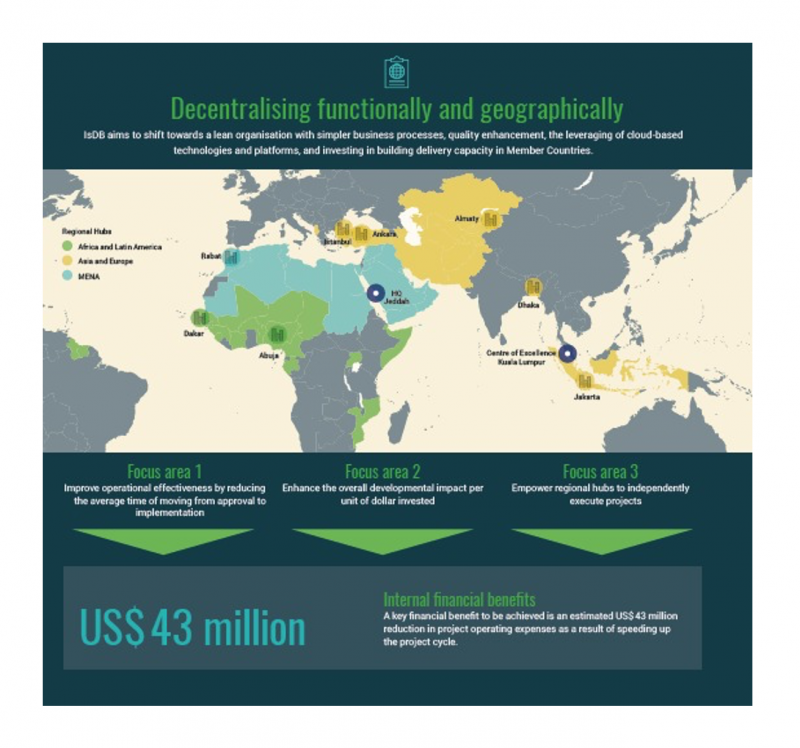Decentralization
The Bank identified significant scope for improvement in the execution of projects it financed. IsDB considerably lagged comparable multilateral development banks (MDBs) on commonly tracked project execution metrics, namely: quality of entry (i.e. date of project approval to date of first disbursement) and quality of implementation (i.e. delays during the disbursement phase). Such delays have significant implicit financial costs for IsDB that do not appear on the Bank’s financial statement. Hence, we assessed the opportunity costs associated with project delays.
As part of the President’s Programme (PP), IsDB plans to undertake multiple initiatives to improve project execution. One of them is to adopt a decentralised operating model by enhancing local presence in member countries through the establishment of 11 regional offices. It is envisaged that local presence will enable IsDB to improve the project execution through rigorous appraisal and closer supervision of the projects.
The experience of peer MDBs suggests that the operating costs of adopting a decentralised model will drive up IsDB’s operational costs. However, it is expected that the potential financial benefits from improvement in project execution resulting from decentralisation will exceed the incremental operating costs associated with it. Within this context, the primary objective of this business case is to assess and compare the financial benefits accruing from expediting the project lifecycle with the associated costs of decentralisation.

Challenge
Compared to peer MDBs and planned timelines, IsDB’s current project lifecycle reflects significant delays. Bringing the project lifecycle in line with international standards is expected to accrue an annual financial benefit of US$57 million. In addition, it also enables IsDB to finance additional developmental projects resulting from the faster asset turnover. These financial benefits far exceed the projected incremental costs from decentralisation, namely, one-time set-up costs of US$8.6 million and annual incremental operating costs of US$13.8 million.
It must be noted here that decentralisation alone will not be sufficient to improve the project lifecycle to international standards. It is imperative for IsDB to undertake other supporting initiatives outlined in the PP such as conducting rigorous project appraisal, streamlining operational processes, and enhancing project supervision and staff competencies to realise the financial benefits of the expedited project lifecycle.
Solution
Under the PP, IsDB undertook the following actions:
- Implement the planned decentralisation of its operations
- Implement supporting measures outlined in the delivery track of the PP that are aimed at improving the delivery model. Some of the initiatives such as setting up a project preparation facility, enhancing staff competencies etc. may require additional investments.
- Streamline end-to-end processes, including addressing the procurement bottlenecks.
- Closely monitor the key performance metrics, i.e. the quality of entry and quality of implementation at the senior management and Board levels.